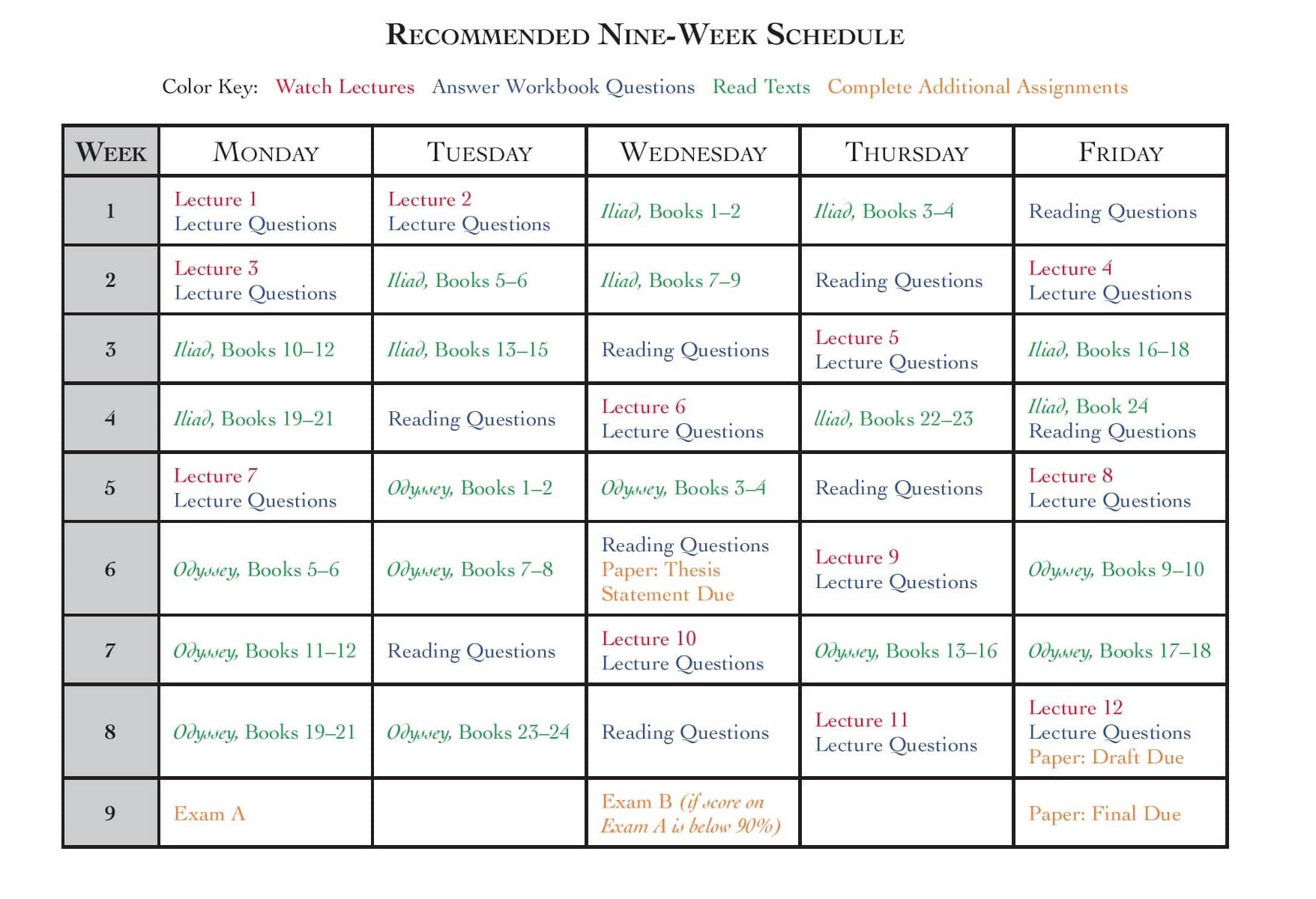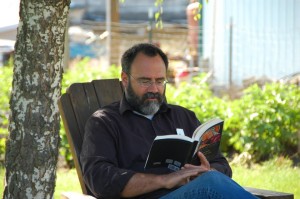Welcome!
Thank you for purchasing The Epics, the first unit in The Greeks, Year 1 of the Old Western Culture curriculum. We are delighted to be helping students through some of the greatest literature of Western Civilization!
Below are a few notes on how this course was designed so that you can get most out of it and fit it to your specific needs.
Basic Structure and Schedule
Old Western Culture: The Greeks is divided into 4 basic units: The Epics, Drama and Lyric, The Histories, and The Philosophers.
Each unit has a recommended schedule that goes through the course in a 9 week period. However, we really encourage students and families to take their time: this is one course that might warrant a slower pace!
Below is the recommended 9 week schedule. Download all the necessary PDF materials here.

The Epics has 12 lessons. The basic structure for each lesson is: 1) a reading from the great books, 2) a quiz on the reading, 3) a lecture on the reading, and 4) a quiz on the lecture.
Course Load
We expect the average student to spend one to three hours per day on this course. The variance can have two factors: the particular assignment (some reading assignments are lighter), and the overall reading level of the student. The IS a good deal of reading, but don’t be scared! Wes Callihan guides you through not only the story, plot, and themes, but also teaches you how to approach the reading. This is epic literature (literally), and while it can be daunting at first, has a huge pay-off!
Note on Difficult Passages
If you’re having a hard time understanding a particular reading assignment and you’re not scoring well on the reading quiz, don’t spend extra time trying to figure out the reading. Move on to the lecture, where Mr. Callihan spends time going over your assigned reading. The difficulty of the reading passages throughout this year vary, so don’t stress if you run into a few that are more difficult than the rest. Keep moving and most likely the lecture will clear things up.
Note on Translations
For most lessons, you will be assigned a reading from the great books. You have a few options on how to read these texts:
- Use copies that you already own. While they may not be the same translation that Mr. Callihan uses in the course, any translation will do. The course uses universal line numbers, so you will always be abel to find the page, though it may vary slightly with you edition. Mr. Callihan frequently emphasizes the benefit of referencing multiple translations.
- Purchase the recommended translations. The recommended translations will be listed at the beginning of each unit in this course.
- Use our e-Texts. They’re free, and they contain exactly the assigned reading! Once again, find these on the Materials Page.
A Note on Spelling
You may notice a lot of variation in the spelling of Greek proper nouns. Most of these variations are the result of different transliterations based on either the Latin or the Greek spellings. For example, most of the painting titles reference names transliterated from Latin, while this course uses transliterations based on the recommended translation, which are usually based on the Greek spellings. An example would be the name “Achilleus” in Lattimore’s translation of the Iliad, whose name is often spelled “Achilles”. Both variations are acceptable and you are free to use whichever you prefer.
Note on Exams
Each exam has an A and B version. If your score on Exam A is below 90%, don’t take it again. Instead, when you’re ready, take Exam B. There is a Teacher’s Edition for each exam, with information on grading, and an Answer Key.
About the Instructor
 Wesley Callihan grew up on a farm in Idaho and graduated with a degree in history from the University of Idaho. He has taught at Logos School, New Saint Andrews College, and Veritas Academy. In 1997 he founded Schola Classical Tutorials where he teaches online classes on the Great Books, Astronomy, Church History, Greek, and Latin.
Wesley Callihan grew up on a farm in Idaho and graduated with a degree in history from the University of Idaho. He has taught at Logos School, New Saint Andrews College, and Veritas Academy. In 1997 he founded Schola Classical Tutorials where he teaches online classes on the Great Books, Astronomy, Church History, Greek, and Latin.
He is now working with Roman Roads Media to produce Old Western Culture, a 4-year integrated humanities curriculum designed to equip homeschoolers and their families with the tools to tackle the Great Books that shaped Western Civilization.

